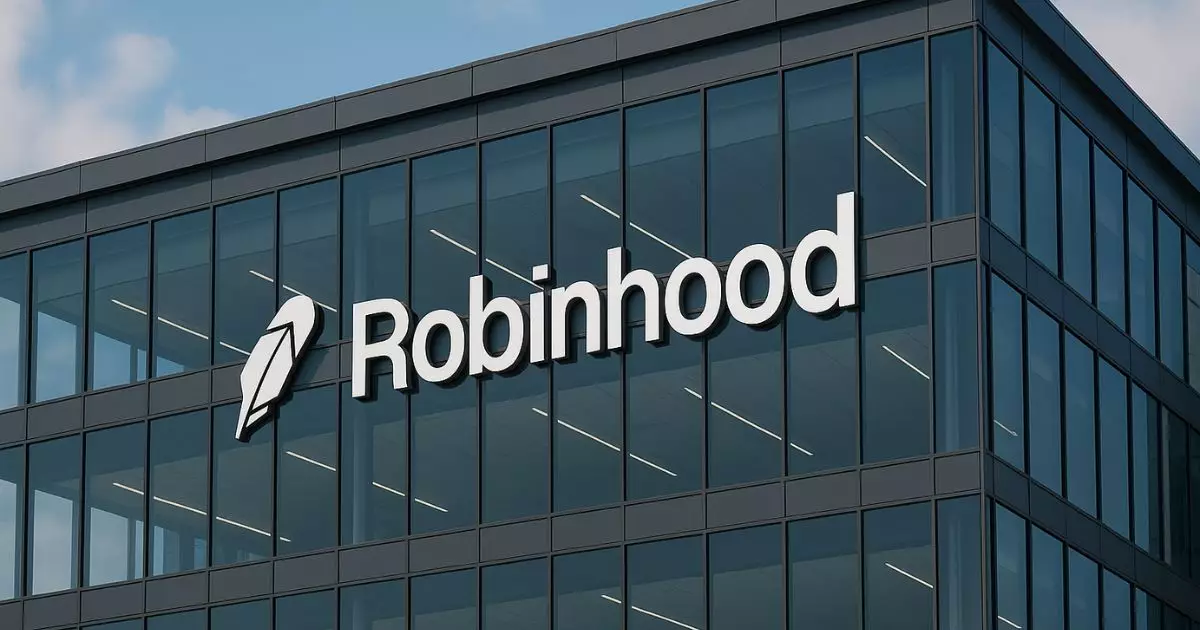In a notable move, Robinhood has presented a compelling proposal to the US Securities and Exchange Commission (SEC), urging the establishment of a comprehensive regulatory framework for tokenized real-world assets (RWAs). This initiative comes at a time when the potential market for RWAs is an astonishing $30 trillion, signifying not just a financial opportunity but a transformative shift in how we understand and utilize our assets. It’s crucial for the SEC to respond positively; the necessity for an evolved regulatory approach has never been clearer.
The current landscape for tokenization is characterized by its disjointed nature. Numerous pilots and regulatory sandboxes operate in isolation, hindering innovation and growth. Robinhood’s proposal stands out because it pushes for a cohesive national framework that connects these disparate pieces under standardized guidelines. This is akin to switching from a series of disorganized local traffic laws to a unified national highway code—it facilitates smoother interactions, eases complexities, and drives progress.
Bridging Traditional and Digital Finance
At the heart of Robinhood’s filing is the belief that tokenized assets should not be relegated to the shadows of derivatives or synthetic instruments. Instead, they deserve recognition as direct representations of traditional financial products. This subtle yet profound perspective invites us to reconsider how we categorize assets. The lines between traditional finance and digital innovation are increasingly blurred, and Robinhood’s stance can serve as a catalyst for this transformation.
The proposed platform, the Real World Asset Exchange (RRE), marries off-chain trade matching with on-chain settlement. By integrating essential compliance tools such as know-your-customer (KYC) and anti-money-laundering (AML) provisions, Robinhood aims to ensure that this transition doesn’t compromise investor protections. Rather than inventing new blockchain technologies, the company is emphasizing interoperability—connecting the dots between existing frameworks and the innovations that blockchain can offer.
A Call for Institutional Participation
Robinhood’s initiative is not merely an internal endeavor; it is a clarion call for broader institutional participation in the rapidly evolving world of on-chain financial markets. For too long, institutional investors have sat on the sidelines, uncertain of how to engage with the crypto space. If Robinhood can successfully attract institutional interest, it could usher in an era of legitimacy and acceptance for tokenized assets.
However, this journey won’t be without hurdles. The reception from the SEC will play a critical role in shaping the future landscape of tokenized RWAs. While Robinhood has paved the way with a structured and methodical proposal, the actual implementation will rely heavily on whether regulators are ready to embrace this novel approach.
Regulatory Reception: The Linchpin to Success
As of now, Robinhood’s submission marks one of the most systematic efforts by a US-regulated broker to formalize tokenized RWAs in the mainstream finance ecosystem. However, the effectiveness of this initiative will depend on how it resonates within the regulatory frameworks of the United States. If the SEC opts for a cautious approach, it could stifle innovation and leave the US behind in a global race for digital finance leadership.
On the flip side, a favorable response could pave the way for unprecedented growth in this sector. If the SEC recognizes the legitimacy of Robinhood’s argument—that tokenized assets ought to be treated with the same respect as traditional assets—they could catalyze a much-needed modernization of financial markets. This is not just about giving a nod to innovation; it’s about fortifying the entire financial system against obsolescence.
Indeed, we stand at a pivotal juncture where the traditional and the digital can coexist harmoniously, offering new channels for investment and growth. Robinhood’s proposition could unlock the doors to a new reality, where a tokenized, streamlined, and efficient market eccentrically empowers both retail and institutional investors.















